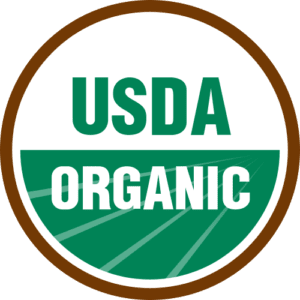[Read Cornucopia’s letter to USDA Secretary Sonny Perdue.]
Trump/Perdue Draining the Swamp at the USDA?
In an expression of “profound disappointment,” the nation’s most aggressive organic industry watchdog, The Cornucopia Institute, today sent a letter to USDA Secretary Sonny Perdue criticizing the department’s rejection of guidance from its expert advisory panel.
The National Organic Standards Board (NOSB) recommended discontinuing the use of conventional inulin-oligofructose enriched (IOF), whey protein concentrate, and Turkish bay leaves in organic products. The NOSB found all three no longer “essential” for use in organic food production. However, after pressure from organic and agribusiness lobbyists, political appointees overruled the board to leave these ingredients on the USDA’s National List of substances allowed for use in organics for the next five years.
 |
“This is highly disrespectful to all engaged industry participants. Materials decisions by the NOSB are based on a collaboration with all organic stakeholders over a period of a year,” said Linley Dixon, PhD, senior scientist at The Cornucopia Institute.
In this case, after receiving written and oral public testimony, the board voted 14-0 to delist the three substances in question in an effort to prod organic manufacturers to use available certified organic ingredients. “Even the board chair, Tom Chapman, who works for Clif Bar, a company that currently uses non-organic whey protein concentrate in their products, voted for the delisting based on what he said was a ‘sufficient supply of organic whey’,” Dr. Dixon added.
A statement today from USDA’s National Organic Program said, “Organic handlers are permitted to use the non-organic substance only if the organic substance is not commercially available.” However, numerous industry experts, in addition to Mr. Chapman, provided public testimony to the NOSB that certified organic ingredients were available to take the place of the three substances in question.

This is far from the first time The Cornucopia Institute has criticized both the political appointees and the management running the National Organic Program (NOP) at the USDA. During the Bush era, Cornucopia had to file a series of legal complaints before regulators took action against factory dairies gaming the organic regulations, and even then the agency let the scofflaws off without tough penalties. A story out today in the Washington Post highlights continued lack of enforcement and favorable treatment for agribusiness at the NOP.
During the Obama administration, Cornucopia continued to spotlight the cozy relationship between lobbyists at the Organic Trade Association (OTA), the industry’s powerful lobby group, and USDA officials. Cornucopia has previously stated that the NOSB’s authority was undermined under Obama/Vilsack leadership when the NOP ignored the decision by the advisory panel to ban the labeling of hydroponic growing (without soil) as organic. Hydroponics, or “container growing,” continues to be one of the hottest issues being debated by the NOSB.
“Based on Mr. Trump’s statements during his campaign, we were cautiously optimistic that his administration would discontinue allowing corporate lobbyists to call the shots in terms of farm and food policy at the USDA,” stated Mark Kastel, Cornucopia’s co-director. “We are obviously disappointed.”
Several respected non-profit organic research groups, in testimony before the NOSB, supported the removal of the three aforementioned conventional ingredients from organic foods, including Consumers Union, publisher of Consumer Reports magazine, and Beyond Pesticides. “The agency is required to base changes to the National List on ‘proposed amendments developed by the National Organic Standards Board,’ so this decision is contrary to the Organic Foods Production Act,” commented Terry Shistar, PhD, of Beyond Pesticides.
“Instead, industry lobbying is influencing actions at the NOP,” said Dr. Shistar, referring to comments submitted by California Custom Fruits and Flavors, Beneo Inc. (both IOF suppliers), the Juice Products Association (an Industry Trade Group), and the OTA.
“Congress created the NOSB, specifically, so agribusiness consultants like the ones mentioned by Dr. Shistar would not run roughshod, as is so common in the Washington regulatory environment, over the interests of organic farmers and consumers,” added Kastel.
Consumer groups that watchdog the organic industry often lobby against the inclusion of gimmicky, marketing-oriented, conventional ingredients in organic foods, arguing that they are not essential and have no place, legally, in organic foods. Conventional IOF, used to add fiber and sweeten food, was voted to be removed from organic products by the NOSB because its properties are available from certified organic agave.
“As with any other isolated component of food that is added for purported nutritional health benefits, the better choice for consumers would be products derived from whole food ingredients, in this case organic orange juice pulp,” added Dixon. Orange juice pulp is another food-based alternative for IOF.
In the case of whey protein concentrate (WPC), a byproduct of conventional cheesemaking with milk coming from giant factory farms, no evidence was provided during any of the formal public comment periods documenting a lack of commercially available, certified organic WPC.
 |
Source: USDA |
“It’s hard for the organic community to understand USDA leadership’s justification for overturning a unanimous recommendation from an informed expert panel, the NOSB, on these particular ingredients,” concluded Dixon.
Cornucopia’s letter to Secretary Perdue struck a conciliatory note, stating that early in his tenure he could have received bad information from subordinates in the department. The farm policy research group also reiterated their call for the removal of the current National Organic Program Staff Director, Miles McEvoy, stating, “All corrupt corporate influence and illegalities during the Obama administration, and now into your tenure, pass through the NOP. Its management is too knowledgeable and experienced to account for these multiple scandals as errors.”

